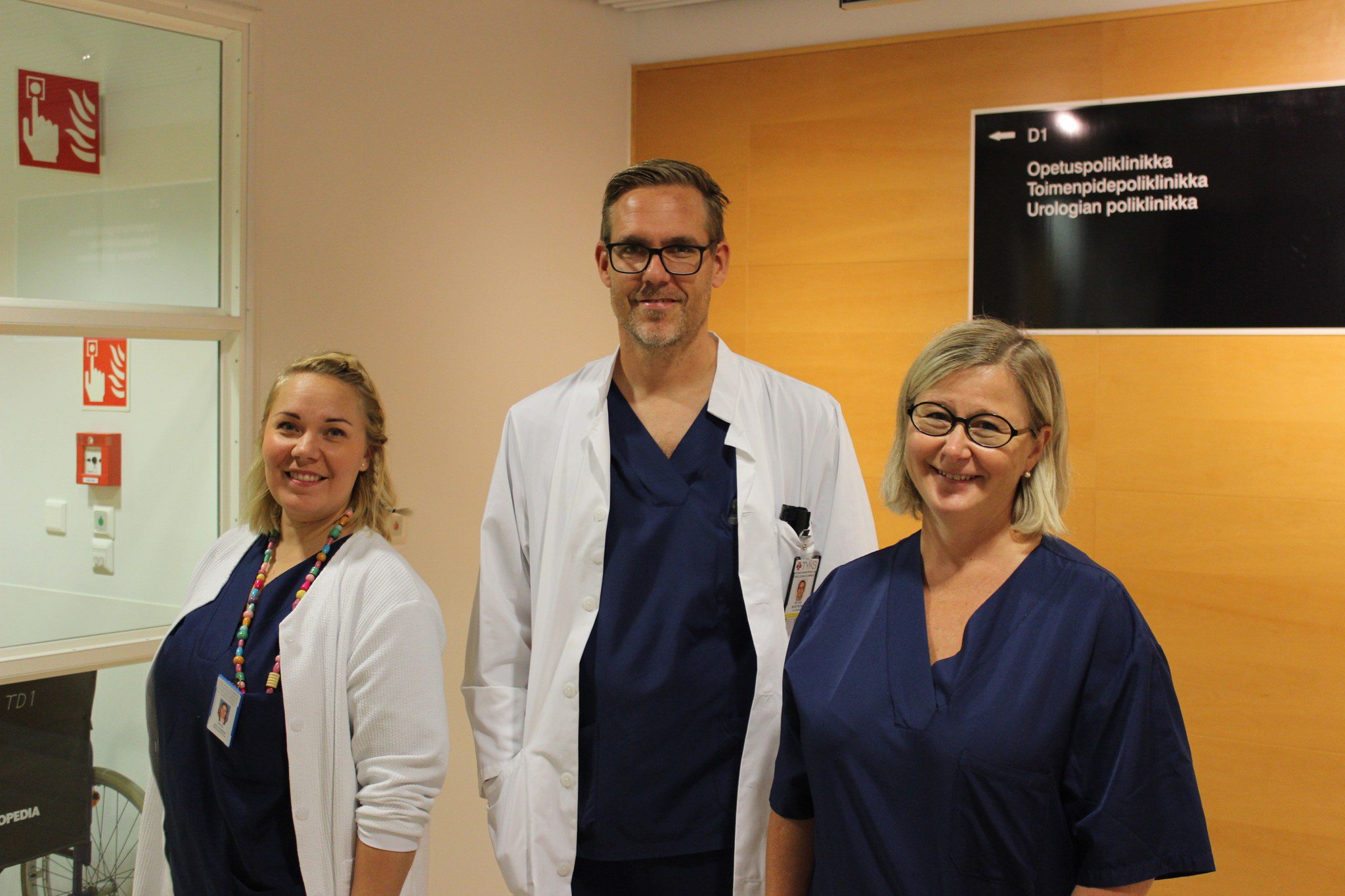10 October 2022
Docent and Chief Physician Peter Boström, Director of the Administrative Branch of Urology at Turku University Hospital, has received valuable further training abroad. The TYKS Foundation supported this training with a scholarship for three years.
Peter Boström decided to specialise in urology. He had specialised in surgery because of his dissertation on bladder cancer. An important step in his career as a urologist was working at Princess Margaret Hospital in Toronto from 2009 to 2011. The hospital is a centre of excellence in uro-oncology. After returning to Finland, Boström was appointed Head of the TYKS Urology Clinic in 2012.
Performing surgeries with top experts gave me important influences. It does not mean imitating; observing top experts and focusing on specific activities is useful. I certainly learned more there than it would have been possible in Finland in five years. Support from the TYKS Foundation played an important role in funding my years spent in Toronto.
Persons affected with a disease need information
The idea of the importance of the information needs of men with prostate cancer was also reinforced in Canada. Prostate cancer is a disease with several treatment options. When the line of treatment is decided by the physician and the patient together, the patient must be on the same page as the treating physician.
The patient cannot participate in the selection of the line of treatment if he does not have sufficient background information about his disease and its treatment options. Although we will, of course, go through them with the patient, he will not always be ready to comment immediately. Active monitoring, for example, is a treatment option that, if misunderstood, can be understood as a lack of treatment in the mind of the patient and his spouse, even though this is definitely not the case. As the technical removal of the cancerous growth through radical surgery and the quality of life are often contrasted, the decision cannot be in the hands of the treating physician alone, Peter Boström ponders.
After many patients and spouses having asked where to find information, and with no guide available, Boström wrote one with the support of his colleagues. Eturauhasen sairaudet. Ennaltaehkäisy, tutkimukset ja hoito (Tammi 2015, English translation: Prostate diseases. Prevention, examinations and treatment) received the Finnish Government’s Award for Public Information granted by the Ministry of Education and Culture in 2016.
Include the spouse
In Finland, a man coming to an appointment because of prostate issues may be shy to ask whether his spouse can participate in discussing the treatment. In Canada, the participation of spouses is quite common and natural. After all, it is important for their relationship. Besides, two pairs of ears always hear more, and record more than one person could.
Heidi Aaltonen (left) Peter Boström (middle) Mia-Mari Suotonen (right)
Research develops treatment
Today, 60 per cent of Director Boström’s working hours are dedicated to clinical patient work, 20 per cent to administration and 20 per cent to research. The last one often seeps into his free time.
The conditions for urology at Turku University Hospital are good. The facilities at the A Hospital are functional and the old hospital is perhaps the most beautiful place on the Kiinamyllynmäki hill. We have skilled personnel and passion for our work.
Urologists engage in research cooperation with biomedical researchers such as Professors Matti Poutanen, Sari Mäkelä, Johanna Schleutker, Mathias Nees, Jyrki Heino, Kim Pettersson and Pirkko Härkönen, as well as Pathologists Pekka Taimi and Markku Kallajoki. Turku Prostate Cancer Consortium, in cooperation with the Auria Biobank, collects samples, clinical data and follow-up data on prostate cancer for future research.
More accurate detection of cancer and new imaging guided TULSA therapy provide precision
In recent years, a significant part of TYKS’s urology research has been related to MRI imaging of prostate cancer. This has enabled better patient selection for biopsy. PSMA PET-CT imaging is a new imaging method that can be used to detect a spreading prostate cancer better than before. TULSA is a new imaging guided treatment in which ultrasound heating can be used to treat the tumour area of the prostate more accurately and with less adverse effects than traditional surgical and radiotherapy treatments.
In addition to basic and imaging research on urological diseases, several multinational phase III clinical studies are underway at the urology clinic. Their goal is to provide patients with the latest medicines as early as possible.
PETER BOSTRÖM, 48
Lic.Med. 1999, D.Med.Sc. 2001, UTU
Specialist in urology 2007
Further training in Toronto 2009–2011
Title of docent 2012, UTU
Chief Physician and Director of the Administrative Branch of Urology at TYKS 2012
European Association of Urology Nurses’ Crystal Matula Award for merits as academic urologist 2013

